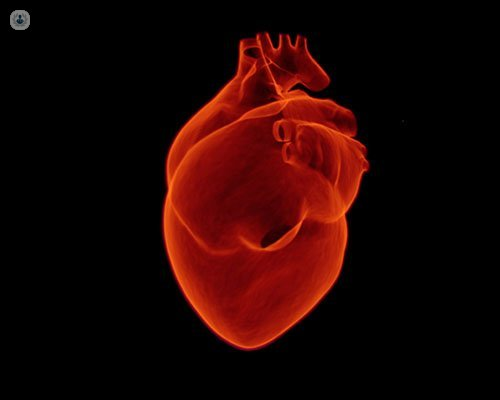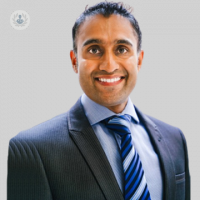Heart valve disease explained: A patient's handbook
Written in association with:Heart valve disease is a condition that affects the valves of the heart, which regulate blood flow in and out of the heart chambers. Leading consultant cardiologist Dr Ananth Kidambi provides a clear understanding of what heart valve disease entails, its symptoms, causes, and the treatment options available.

What is heart valve disease?
Heart valve disease takes place when one or more of the heart's valves fail to work correctly. The heart is made up of four valves: the mitral, aortic, tricuspid, and pulmonary valves. These valves ensure that blood flows in the correct direction through the heart’s chambers and to the rest of the body. When a valve does not open or close properly, it can disrupt blood flow and lead to various health problems.
Types of heart valve disease
There are two main types of heart valve disease:
Stenosis: This occurs when the valve opening becomes narrowed, restricting blood flow. Imagine trying to push water through a partially blocked pipe; this is similar to how blood flow is restricted in stenosis.
Regurgitation: Also known as insufficiency or incompetence, this happens when a valve does not close properly, causing blood to leak backwards. Think of it like a door that doesn’t shut completely, allowing air to flow back through.
What are the symptoms to watch out for?
Heart valve disease can manifest with a variety of symptoms, many of which are similar to those of other heart conditions. Common symptoms include:
- Shortness of breath: This may occur during activity or even at rest.
- Fatigue: Feeling unusually tired or weak.
- Palpitations: Noticeable, irregular heartbeats.
- Swollen ankles or feet: This can indicate fluid retention.
- Chest pain or discomfort: Particularly during physical exertion.
- Dizziness or fainting: These can be signs of reduced blood flow to the brain.
Causes and risk factors
Several factors can contribute to heart valve disease:
- Age-related changes: Over time, heart valves can thicken and become less flexible.
- Congenital valve disease: Some individuals are born with valve abnormalities.
- Rheumatic fever: This can damage the heart valves and is a complication of untreated strep throat.
- Infections: Such as infective endocarditis, an infection of the heart’s inner lining.
- Heart attack: Damage to the heart muscle can affect valve function.
Diagnosis and treatment
Diagnosing heart valve disease typically involves a physical examination and tests, including echocardiograms (ultrasound of the heart), and sometimes cardiac MRI.
The treatment varies based on the type and severity of the valve disease: Options include:
- Observation only: Heart valve disease may not be of immediate concern, but may need regular surveillance to ensure complications do not arise.
- Medication: To manage symptoms and prevent further complications.
- Valve repair: Surgeons may be able to repair the valve to restore its function.
- Valve replacement: In more severe cases, the damaged valve may need to be replaced with a mechanical or biological valve.
Living with heart valve disease
Managing heart valve disease often involves regular follow-up with your cardiologist, a healthy lifestyle, and adherence to prescribed treatments. It's crucial to monitor symptoms and report any changes to your doctor promptly.
Understanding heart valve disease empowers you to take an active role in your heart health. With the right care and management, many individuals with heart valve disease lead full and active lives.
If you would are concerned about heart valve disease and would like to book a consultation with Dr Kidambi, do not hesitate to do so by visiting his Top Doctors profile today.


